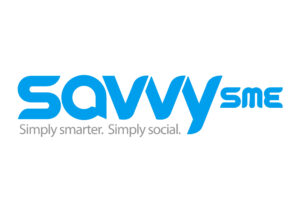SavvySME Discusses How Word of Mouth Marketing Still Thrives Amidst Other Traditional Marketing Platforms Dying
Word of mouth referrals are the most used method to acquire new clients while usage of other traditional marketing like print, tv, radio are at all-time lows.
As part of the 2021 SavvySME Small Business Advertising Report, which analyses a wide range of marketing focuses for advertisers and businesses on its online platform, users took a survey answering the question,
“What tools do you use to acquire new clients?”
And, the results were quite interesting.
Various forms of print advertising like newspaper ads, billboards, brochures, and direct mail were found to be used by 4.5% of marketers, while other traditional forms of offline marketing like television and radio were only used by 3.8% of advertisers.
Marketing Technology News: Sensibill Named a Top Growing Company by The Globe and Mail for the Second Consecutive Year
1 in 2 service providers invests in some form of SEO and online advertising.
In comparison, 92.3% of businesses have adopted word of mouth marketing (WOMM or WOM), another “archaic” type of marketing.
But why is WOM thriving in the digital marketing age while other forms of traditional marketing are dying?
According to GlobalWebIndex, WOM is so popular with advertisers when pursuing new clients because they know:
- People hold information from sources they trust as highly valuable.
- Information received via WOM has a “buzz”.
- WOM can be revolutionary, disruptive, and create a culture.
In fact, leading global consulting company Mckinsey and Company found that:
“Word of mouth is the primary factor behind 20 to 50 percent of all purchasing decisions. Its influence is greatest when consumers are buying a product for the first time or when products are relatively expensive, factors that tend to make people conduct more research, seek more opinions, and deliberate longer than they otherwise would.”
Ultimately, WOM has led the charge for so long in marketing not because it’s the first form of marketing but because humans are social creatures. We want to share and help each other, and when we experience a quality service or product, we want others to benefit as well.
That’s why it makes sense that business networks like SavvySME or BNI are thriving with 59.6% of services providers using them.
Networking has always been a crucial pillar for businesses.
- According to a world-leading professional recruitment agency, Michael Page, business networking:
- Strengthens business connections
- Establishes fresh ideas
- Raises your profile
- Advances your career (or business)
- Provides access to opportunities
- Helps you gain more knowledge
- Leads to career advice and support
- Builds confidence
- Develops a different perspective
- Cultivates long-lasting personal relationships
- Answers your questions
- Accommodates you in finding a job, niche, or career you’ll love
Rather than taking the form of conferences, networking now predominantly happens online. This presents additional benefits that traditional business networking conferences don’t provide.
Marketing Technology News: MarTech Interview with Phil Gray, Chief Innovation Officer at Interactions LLC
According to industry expert Tania Braukamper of Alignable, five benefits are:
- You can expand your network anywhere (no travel required)
- You can establish yourself as an authority in your field
- You can be the host
- You can connect with a supportive business community
- You can generate more referrals
Will Irving, SavvySME Top Influencer in Selling Online reveals:
“Gone are the days when the ‘closed’ sign on the shop front door meant a missed sales opportunity. Email, social media and SMS – have replaced that sign, so that you can always be ‘open for business.”
Online business networks help service providers connect with more like-minded people and do so from anywhere at any time.
Additionally, some business networks also act as online marketplaces (or lead platforms) that have been emerging as a heavily relied upon option for acquiring new customers, with 34.6% of service providers depending on them.
Save the Robots writer Sinu Johnson defines the essence of online marketplaces perfectly:
“An online marketplace connects a buyer and seller through a distributor’s website or application. Online marketplaces act as digital middlemen, bringing together buyers and sellers to efficiently conduct transactions. Buyers get a choice in what they would like to buy, and sellers get a variety of customers to sell to.”
Marketing Technology News: Audience Targeting in Local Media Markets: More Than a Sum of Its Parts



